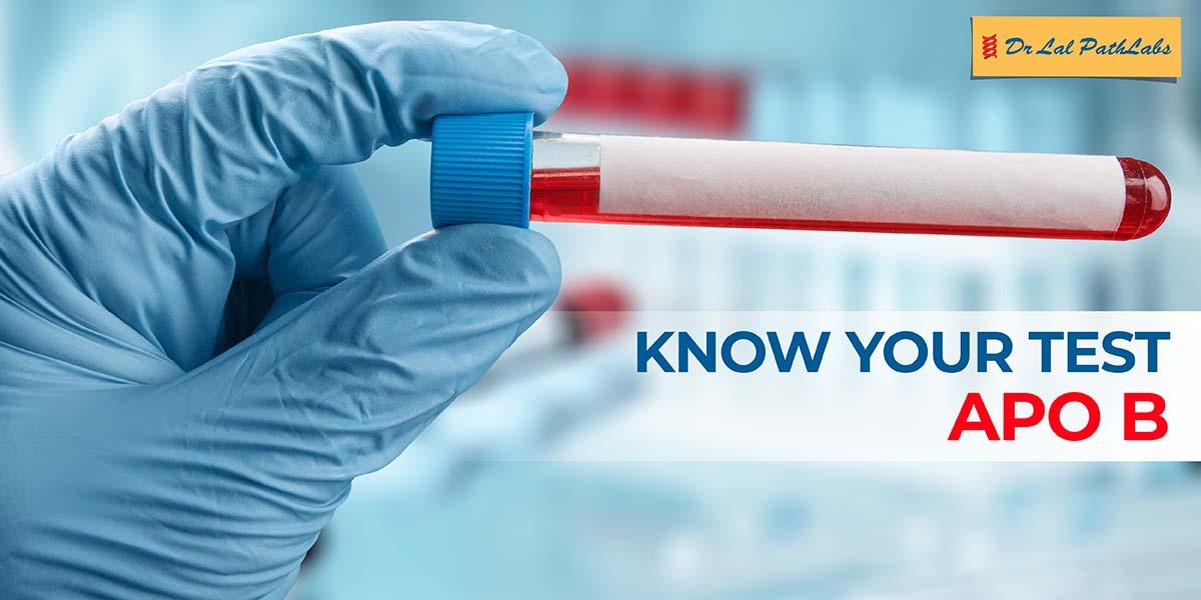Apolipoprotein (ApoB) Test

What is the ApoB Blood Test?
Apolipoprotein B or ApoB, as it is commonly called, is a type of protein found in the outer shell of low-density lipoprotein (LDL) cholesterol particles, often referred to as “bad cholesterol.”
We know that LDL cholesterol plays a significant role in the development of atherosclerosis, which results in the narrowing and hardening of arteries carrying blood due to plaque buildup. When LDL is high, the probability of having elevated levels of ApoB is also high, and hence it is associated with an increased risk of cardiovascular diseases, including heart attacks and strokes.
To know the level of ApoB, you can undertake an ApoB blood test, which measures the concentration of ApoB particles in the blood, providing valuable insights into an individual’s cardiovascular health.
When is an ApoB Blood Test Performed?
The ApoB blood test is typically ordered as part of a lipid panel or cholesterol screening. It is especially useful when traditional cholesterol tests, such as LDL cholesterol levels, may not provide a complete picture of cardiovascular risk or if a person has a history of high cholesterol.
Some instances where an ApoB blood test might be recommended include:
- Family history of cardiovascular disease: If you have a family history of heart disease, your healthcare provider may suggest an Apo B test to assess your risk.
- High-risk individuals: For those with other risk factors like smoking, obesity, sedentary lifestyle, or diabetes, the Apo B test can help evaluate their cardiovascular risk more accurately.
- Unusual lipid profile: If your LDL cholesterol levels are discordant with your overall cardiovascular risk, an Apo B test can help clarify the situation.
- Monitoring treatment effectiveness: For individuals undergoing cholesterol-lowering therapy, Apo B levels can be used to track the effectiveness of the treatment.
How Do I Prepare for an Apo lipoprotein B Blood Test?
The ApoB blood test is a simple procedure and usually does not require any specific preparations.
Your doctor may ask you to fast for 9 to 12 hours before the blood test. This means abstaining from food and drink (except water) during the fasting period.
You may call a Phlebo home by calling or visiting one of our nearest collection centers to book this test. It follows the normal blood test procedure and has no major side effects.
In rare cases, some individuals may experience dizziness or faintness during the blood draw. It is essential to communicate any concerns to the healthcare professional performing the test.
What is a Normal ApoB Level?
As an approximate reference range, a normal ApoB level is usually below 100 mg/dL.
Interpreting ApoB test results should be done in consultation with your doctor, as normal reference ranges may vary between laboratories and the process used.
Generally, a lower ApoB level is considered better for cardiovascular health. Lower ApoB levels imply a lower number of LDL particles, which are responsible for transporting cholesterol through the bloodstream.
However, ideal values may vary based on individual health factors, and your doctor will help you understand your specific results.
The ApoB blood test helps in assessing cardiovascular risk, especially when traditional cholesterol tests may not provide a comprehensive picture. By measuring the concentration of ApoB particles in the blood, the doctor can better evaluate an individual’s risk of heart disease and make more informed decisions regarding preventive measures and treatments.
If you have concerns about your heart health or are at an increased risk of cardiovascular disease, discussing the ApoB blood test with your healthcare provider can be a proactive step toward safeguarding your heart and overall well-being. Remember, early detection and lifestyle modifications can significantly reduce the risk of heart disease and lead to a healthier, longer life.













